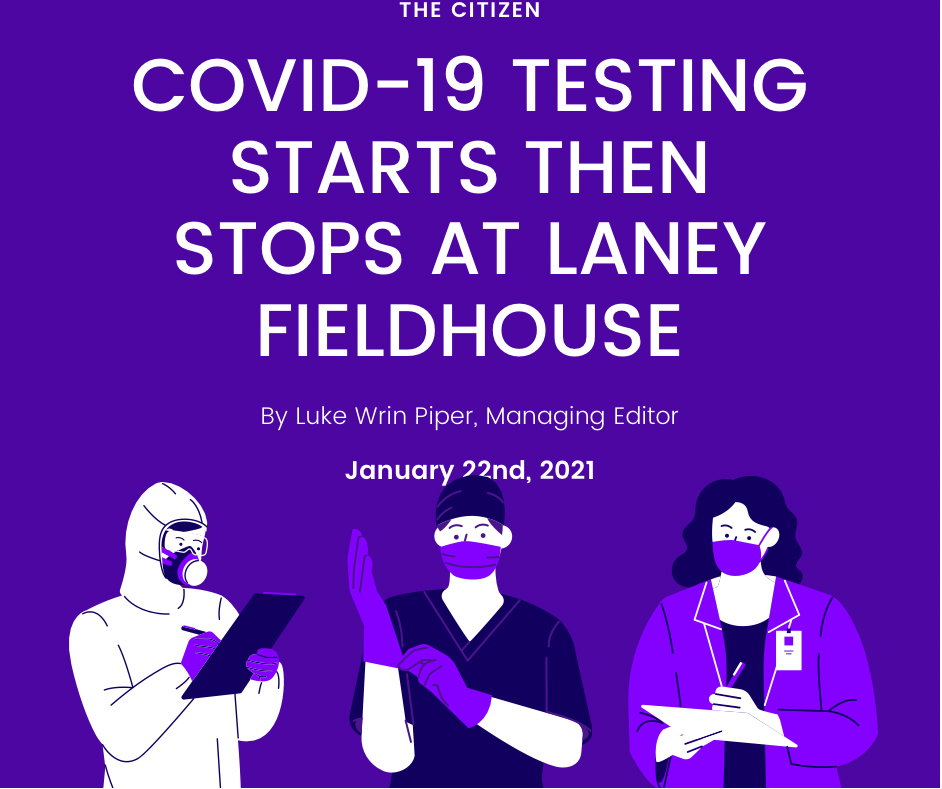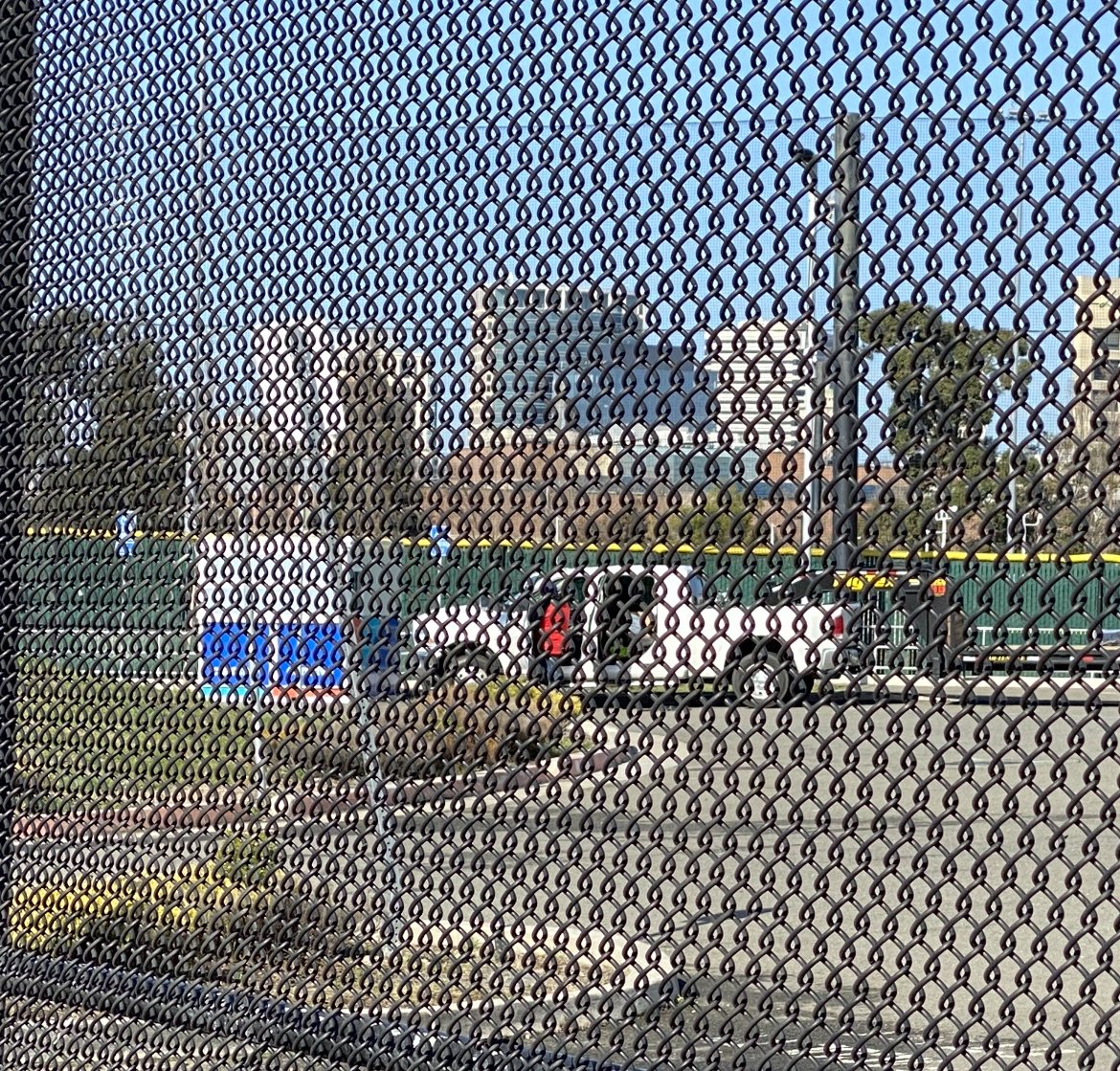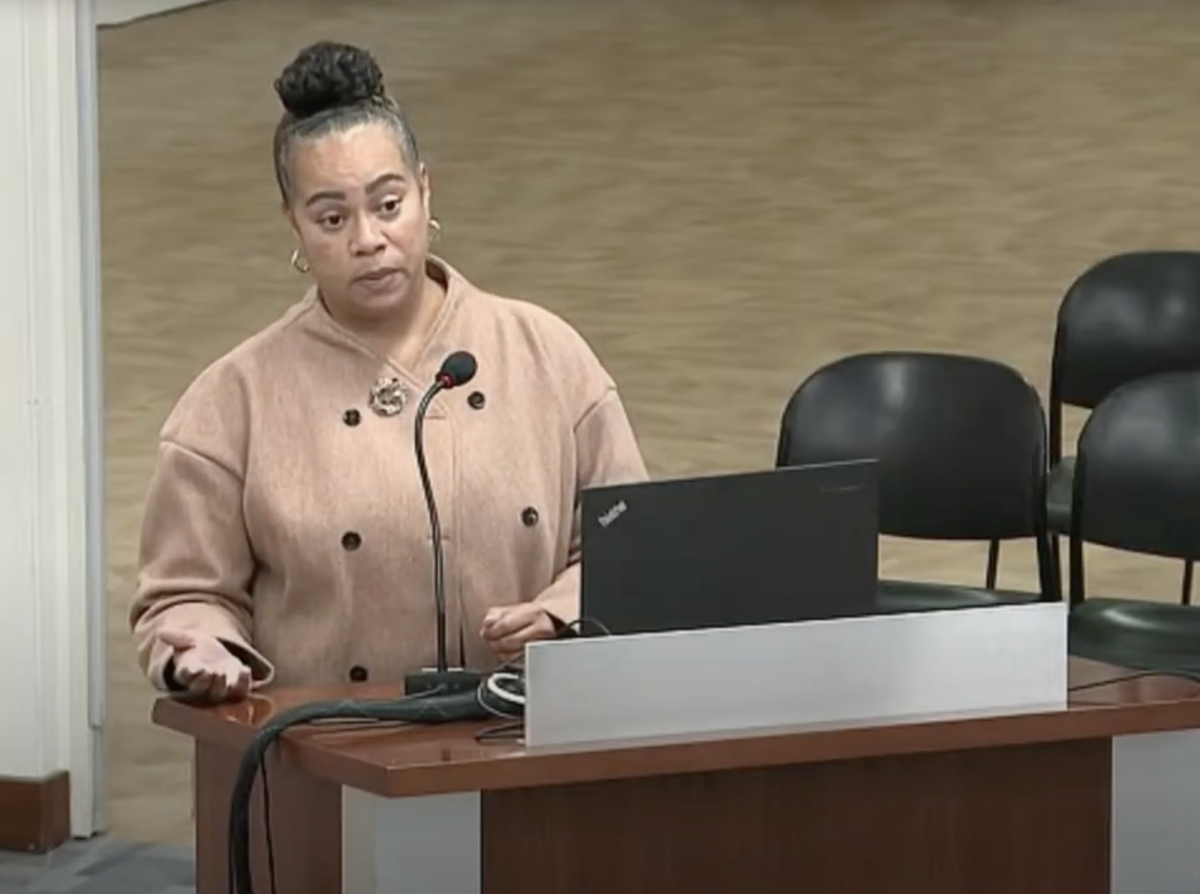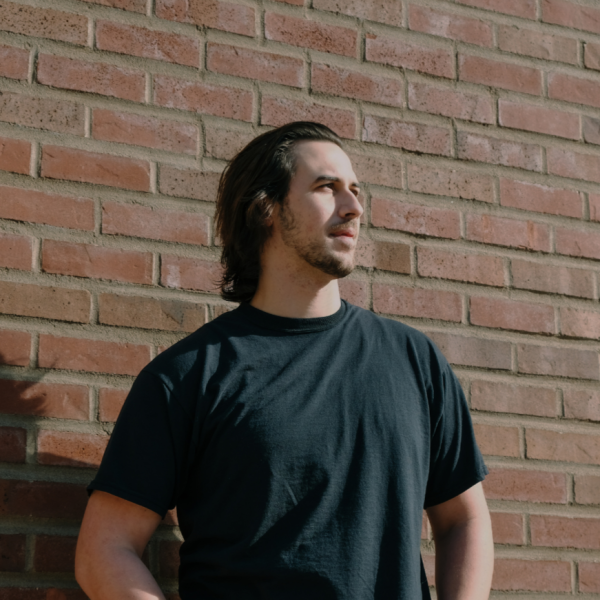
A COVID-19 testing site at Laney College “paused” operations ten days after testing began, despite the company’s initial announcement that they would remain at Peralta “as long as there is a need.”
The test site, announced to the Peralta community on January 14, was part of a push to get a system in place that would make in-person labs and athletics a viable option for the spring semester.
In a January 22 email to The Citizen, Interim Chief of Staff/Special Assistant to the Chancellor Royl Roberts wrote that the district’s agreement with Curative “has been paused.”
The partnership for testing was between the Peralta Community College District and Curative Inc., which was founded in January of 2020 to develop tests for sepsis. According to their website, Curative has since transitioned due to the urgent need of COVID-19 test development and production in the United States, with the help of their partner clinic KorvaLabs Inc.
Typically, use of campus facilities come with a fee, but according to Peralta’s Executive Director of Marketing, Communications and Public Relations Mark Johnson, Peralta was “providing the space” and Curative was “providing the testing service.”
Johnson also said that the Curative tests would be free for the community, stating that “Curative expenses are being paid by the CARES Act and not by Peralta.”
According to Pasquale Gianni, communications manager at Curative, the company uses federal CARES funds to make sure “that those uninsured and underinsured are covered,”
Curative testing was open to all students, staff and members of the community, according to Derek Pinto, vice president of administrative services at Laney College. While the test site was still operating, Pinto explained that testing would take place at the Laney College kiosk location, which was in the parking driveway of the Fieldhouse, between the hours of 9am-4pm Tuesday-Saturday. Tests were available with or without appointment, or medical insurance.
According to Curative’s website, each individual test has a price tag of $325.00. The list price is $250.00 with another $75.00 as a “specimen collection fee.”

The announcement that testing was abruptly “paused” came as a shock to many of those involved, especially in the athletics department. John Beam, athletic director and football coach at Laney College, had been integral in the push to bring some in-person elements back to the district. Beam didn’t know about the recent setback until after it happened.
“A number of athletes had made appointments and then they were told that their appointment was cancelled, and the Laney site no longer is offering appointments,” Beam revealed on Friday evening.
“That’s how we first found out.”
Following the COVID-19 outbreak last spring, the U.S. Food and Drug Administration (FDA) issued an Emergency Use Authorization (EUA), with intentions to indicate current presence of viral infection (or lack thereof) via oral and nasal swab testing. The tests utilize reverse transcription polymerase chain reaction (RT-PCR) testing without a prescription and free of charge. EUA’s have been a regular practice for the FDA during the pandemic, as official approval requires a much longer process.
The Curative website requires individuals to choose at least one COVID-19 symptom that they are experiencing, from “headache” to “new loss of taste or smell,” in order to reserve an appointment. When scheduling an appointment for a Curative test online, individuals are asked for their insurance information.
According to the website, “We may bill insurance, but by law the insurance company may not charge you any copay, deductible, or out-of-pocket expense for the test.”
Curative has faced criticism following a safety communication from the FDA issued on January 4 regarding “the risk of false results, particularly false negative results” with Curative tests. This is the only statement of its kind the FDA has released regarding COVID-19 tests.
“As noted in the EUA, the Curative test is 100% clinically sensitive and 100% specific relative to the CDC assay,” Gianni said.
The data from this section is based on a sample size of 16 infected patients and 12 COVID-free patients, when using a self-collected oral and nasopharyngeal swab while being observed and directed by a clinician.
A look into the Curative website shows clinical sensitivity is placed at 90%, with test specificity remaining at 100%.
“The problem with this test is it appears to be less sensitive than most other tests,” explained Dr. Caryn Bern, professor of epidemiology and biostatistics at the University of California San Francisco School of Medicine.
“And that seems to be particularly true when you use oral fluid as opposed to nasopharyngeal swab collected by a doctor.”
”The sensitivity of the Curative test has been shown to be inadequate, especially in specimens from asymptomatic individuals,” Bern added.
Sensitivity refers to the test’s ability to determine COVID-positive results, while specificity refers to its ability to determine COVID-negative results.
Dr. Rachel West, a Postdoctoral Associate at the Johns Hopkins Center for Health Security and the Johns Hopkins Bloomberg School of Public Health, explained the science behind the Curative EUA.
“It turns out that really they only tested five positive clinical samples and five negative clinical samples. And other numbers they have, they were comparing it in different swab types and in different patient populations, but they were just basically comparing it to their own test,” West said.
The FDA safety communication emphasizes the need to use Curative tests “in accordance with its authorization and as described in the authorized labeling, e.g., the Fact Sheet for Healthcare Providers.”
The stated intended use for Curative tests is for those already showing symptoms of COVID-19. According to the EUA, “collection of nasal swabs and oral fluid specimens is limited to symptomatic individuals within 14 days of COVID-19 symptom onset.”
The FDA has not made public any data that might have factored into this recent decision.
When The Citizen inquired further, FDA Press Officer Lauren-Jei McCarthy replied “the EUA Summary, safety communication, and referenced authorized labeling contain the currently available public information regarding the performance of the test.”
While some local and state jurisdictions have dropped Curative tests from official testing facilities following the FDA safety communication, others have decided to stick with them and monitor the situation as it develops.
One high profile instance occurred when Los Angeles County discontinued their use of Curative tests “as a precaution” on January 10, citing the FDA’s announcement. The release stated “the Curative tests will be replaced with Fulgent Genetics tests.”
Los Angeles Mayor Eric Garcetti has continued to support the use of Curative in the city. ABC7 reported on January 11 that the mayor still stood behind the use of Curative tests for asymptomatic individuals.
“Nearly 100,000 people would have gone undiagnosed that we were able to catch because of this test, and it has helped us predict those surges in hospitalizations and deaths as a result,” Garcetti said, referring to the 92,000 asymptomatic individuals who tested positive as a result of Curative tests.
“This is something that has saved lives, will continue to save lives,” Garcetti said, as reported in a January 7 LA Times article.
Curative is currently operating a kiosk at Berkeley Adult School as well, and Berkeleyside published an article January 8 about the possibility of false negatives. City of Berkeley Public Information Officer Matthai Chakko did not return calls or emails from The Citizen regarding Curative operations within Berkeley.
During the January 19 Board of Trustees meeting, Interim Chancellor Carla Walter addressed the Curative kiosk which had started testing a week earlier.
“Curative was offered to us by Alameda County as a free service. And this organization provides testing for the Department of Defense and the U.S. Congress,” Walter said. The chancellor then acknowledged there had been “some controversy” surrounding the company being dropped from Los Angeles testing sites.
Walter added that the company’s website includes information on conducting these tests as well as “information about how to ensure that the testing is accurate. And if it isn’t, how to go about making sure it is.”
RT-PCR tests have been the gold-standard for COVID-19 testing, used across the board major companies including Curative. But even the most sensitive RT-PCR test has a chance of producing false results.
“If the levels of virus in the patient are sort of low, then even if your PCR is designed well, there might not be enough to detect. That said, PCR should be pretty darn sensitive,” West noted.
“Accurate testing for SARS-CoV-2, followed by appropriate preventive measures, is paramount in the health care setting to prevent both nosocomial and community transmission. However, most hospitals are facing critical shortages of SARS-CoV-2 testing capacity, personal protective equipment, and health care personnel,” an August 2020 Annals of Internal Medicine journal reported. .
In addition to the Curative partnership, the Board of Trustees voted January 19 to approve a $77,000 contract with InGenesis, a staffing agency, that would provide five “enhanced entry screeners” to help with on-campus screening and contact tracing if needed. Trustees Linda Handy and Julina Bonilla against the contract and trustee Kevin Jenkins abstained. Trustees Reiss, Withrow, Gonzalez Yuen and Delfín Polk voted to approve the contract.
Walter introduced the agenda item to vote on the InGenesis contract by noting, “Our highest priority is to make sure our students, faculty, staff and community are as safe as possible in this environment.”
As of January 20th, Alameda County data shows an average of over 800 new cases per day, with a positive test rate of 8.9%. Around 68,000 total cumulative cases have been reported, with a high of 1,300 cases in a single day.
Brisa Santana contributed reporting.


























